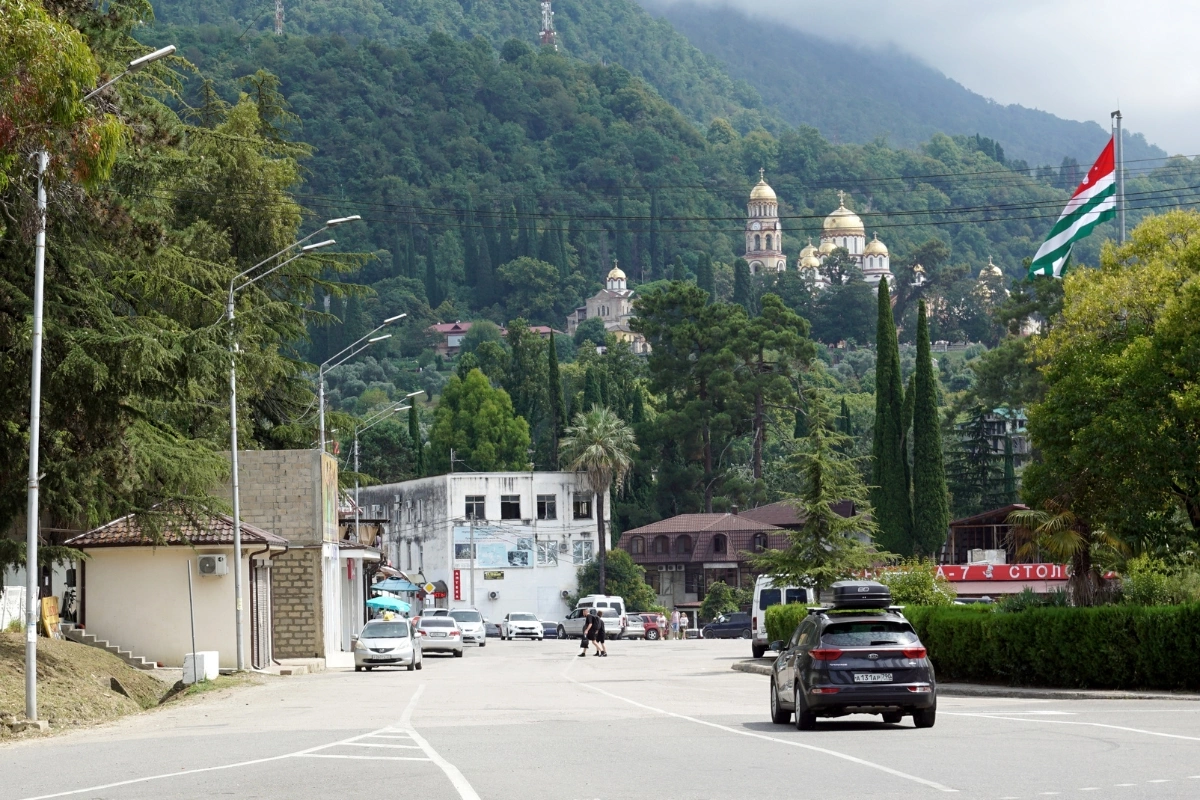
By most standards of international law, Abkhazia is considered a region of Georgia. However, it has been de facto independent since the 1990s, then since the 2008 war, recognized as such by Russia and just a few other states. Some consider Abhazia as ‘occupied’ by Russia, and until recently, up to a third of the Abkhaz economy has been contributed as aid by Russia. However, recent tensions have led Moscow to suspend many of its payments. What’s happening?
Image: YURY LEDENTSOV/shutterstock.com
By most standards of international law, Abkhazia is considered a region of Georgia. However, it has been de facto independent since the 1990s, resulting in the flee of approximately 260 000 ethnic Georgians from the region; then, since the 2008 August War, it was recognized as an independent country by Russia and just a few other states. International society recognizes Georgia’s independence, sovereignty, and territorial integrity within its internationally recognized borders; hence, it considers Abkhazia as occupied by Russia [1]. Consequently, it is isolated from international affairs and trade and is heavily interconnected with Russian politics and economy; until recently, up to a third of the Abkhaz economy has been contributed as aid by Russia. However, recent tensions have led Moscow to suspend many of its payments. What’s happening?
Dependency on Russian Financial Support
For years, Russia has played a crucial role in maintaining the Abkhazian economy, contributing US$54 million of its $166 million budget in 2024 and $54 million of the $117 million in 2023. Beyond budgetary aid, Abkhazia’s economy is deeply integrated with Russia, using the rouble as its national currency and benefiting from substantial Russian support through several key programs. So maintaining good relations with its northern neighbour is essential for the de facto Abkhazian government for economic reasons, quite aside from the Russian military presence.
Fact Box:
However, Russia has been pressing Sukhumi [2] for various concessions to either pay for or stop Abkhazia’s addiction to Moscow’s handouts. As we reported last year, in December 2023, Abkhazia signed away to Russia its ownership of the Bichvinta (Pitsunda) Black Sea resort, sparking spontaneous protests. And that was just the start. It seems Russia wants more – pressing de facto president Aslan Bzhania to pass the Apartment'Bill'—controversial legislation that would lift current restrictions on foreigners buying real estate. Abkhazia’s beautiful mountain-backed beaches are popular with Russian visitors, and Bzhania claims building and selling 30,000 new apartments could help solve the region’s huge debt of around US$4 billion and address the issue of some 70,000 unemployed people.
However, whether or not the ‘Apartment Bill’ would really succeed in stimulating economic growth through tourism, there is widespread concern among the Abkhazian population that it could cause a massive influx of Russians. That, many fear, would undermine the'sovereignty’ of the breakaway entity and could lead Abkhazians to once again become a minority in their own ‘country’ - as had been the case in the Soviet era when they were heavily outnumbered by Georgians [3].
The Abkhazian opposition has heavily criticized the bill, calling it an attempt at creating a new colonization. This summer, public dissatisfaction peaked on July 17 when mass protests saw approximately 5,000 demonstrators gathered outside Parliament to demand the law's withdrawal, resulting in clashes with law enforcement agencies. A week later, on July 25, the de facto government appeared to bow to public pressure, and the law was withdrawn while increasingly unpopular Bzhania dealt with other problems, including a fuel crisis, the

However, on September 3, Russia upped the pressure, suspending social funding payments to Abkhazia of US$1.6 million. Sergei Shamba, the de facto Foreign Minister, confirmed the situation, stating that the relationship between Russia and Abkhazia had shifted. On September 23, Abkhazia’s leaders once again dismissed the claim that Russia was an occupying power but set about creating the groundwork for re-submitting the Apartment Law. This time the approach is to start by using civil servants and other employees to gather signatures in support of the project. For the opposition, this is a very obvious cynical ploy, but Bzhania has little room for manoeuvre. Squeezed between hostile Georgia and frustrated Russia, Abkhazia's political and economic landscape looks fragile, and at the UN General Assembly on September 29, Russia’s foreign minister Sergei Lavrov even hinted that Moscow could come to some kind of agreement with Tbilisi on removing Russian troops from Abkhazia, which would leave Sukhumi’s mirage of independence ever less secure.
[1] In 2008, Georgia initiated a resolution at the UN General Assembly to support the return of the IDPs to Abkhazia and Tskhinvali, which back then passed with 14 votes in favour and 11 against; 105 abstained. Over the years, with the aid of Georgia’s strategic partners towards the so-called non-recognition policy, supporters of the resolution increased among the UN member states. In 2024, it resulted in adoption with 105 in favour, 9 against, and 52 abstentions.
[2] The capital is locally known as Sukhum but is typically referred to internationally by its Georgian name, Sokhumi
[3] Mostly ejected as IDPs during the 1990s conflict
Share on social media